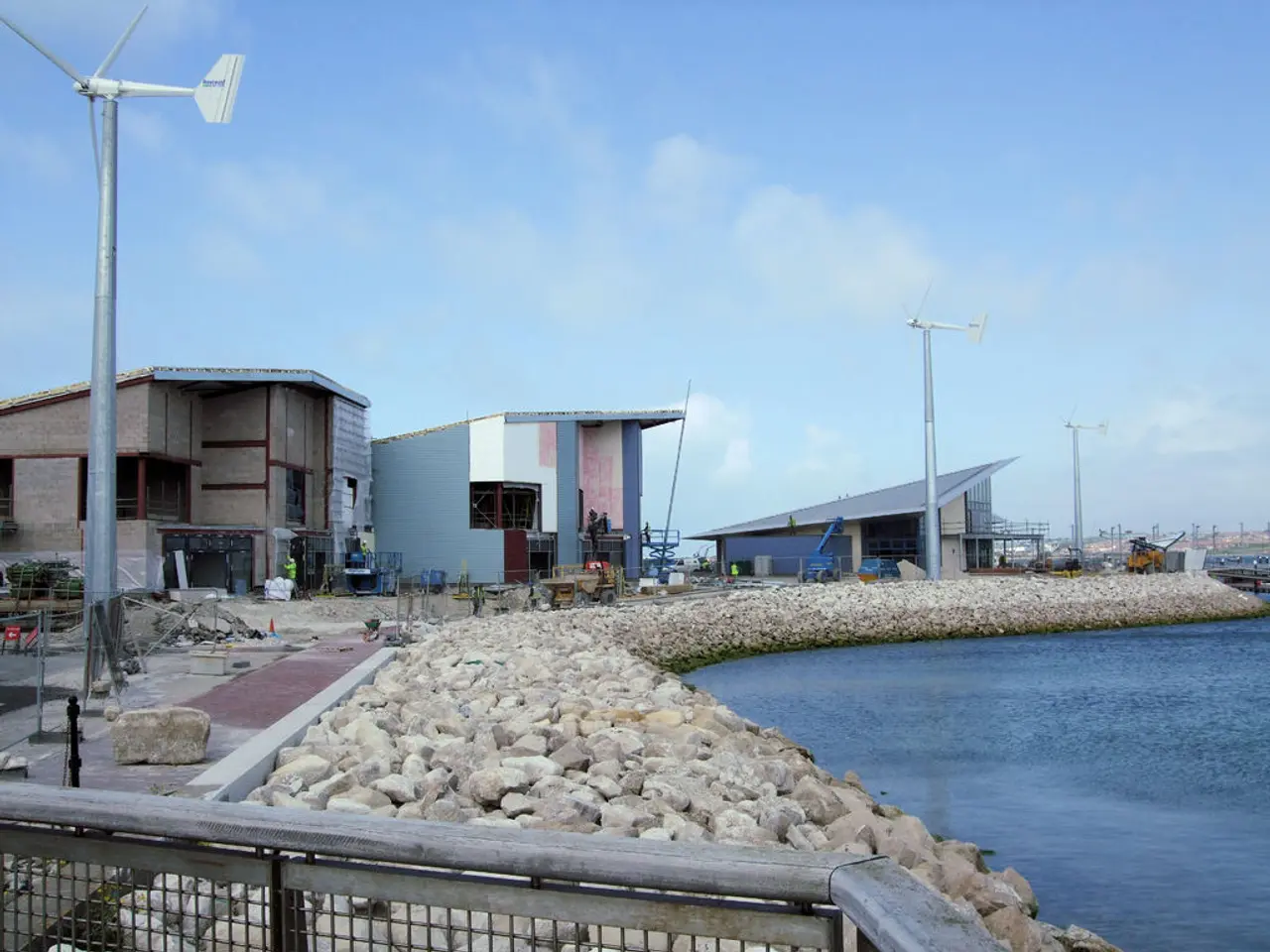Wind farms located in the North Sea remain unsold
In an unexpected turn of events, the latest offshore wind auction in the North Sea, covering 2.5GW of capacity in Germany, has failed for the first time as no bids were submitted by developers [1][2][3][5]. This development is largely attributed to a misalignment between the current auction design and market conditions, including regulatory framework deficiencies that discourage investment under the existing terms.
Key reasons for the failure include:
- Auction conditions not attractive enough to developers, possibly due to risks or financial uncertainties linked to the current policy and auction framework.
- Lack of market incentives perceived by developers, as the auction did not sufficiently mitigate price risks or provide confidence in stable returns.
The failure of the auction raises concerns that Germany's 2030 offshore wind capacity target of 30GW will be jeopardized, with estimates now suggesting only 25GW may be achieved, creating a 5GW shortfall [1][2].
Industry associations and market participants are calling for fundamental reforms to the auction design. One of the proposed solutions is the introduction or support of two-way Contracts for Difference (CFDs). These CFDs can reduce revenue uncertainty for developers by stabilizing prices and lowering electricity generation costs by up to 30%, thereby making projects more bankable and attractive to investors [1][2][5].
The areas N-10.1 and N-10.2, which are located next to each other in a central position in Germany's exclusive economic zone, were not sold in the latest auction. Federal Economics Minister Katharina Reiche (CDU) has announced that she will examine the suitability of these areas for designation. Minister Reiche also suggested that auction conditions may need to be adjusted [4].
The areas for the unsold wind farms will be reauctioned in June 2026, as mandated by law. The BWO has emphasized that the lack of bids in the auction is a failure, and Stefan Thimm, managing director of the Federal Association for Wind Energy Offshore (BWO), has reiterated this sentiment [2].
Kerstin Andreae, chairwoman of the BDEW management board, has stated that wind park developers are facing increasing risks, including rising costs, an unpredictable power market, and planned high density of construction at sea reducing potential power generation [6]. The BDEW has confirmed that no bids were received for the first time in this auction [7].
For years, the BWO has been warning that companies are being burdened with too many risks. The failure of the auction marks the first time an offshore wind farm auction in Germany has failed, highlighting the urgency for reforms to ensure the success of future auctions and the achievement of Germany's renewable energy targets.
[1] https://www.reuters.com/business/energy/german-offshore-wind-auction-fails-first-time-2021-08-06/ [2] https://www.bloombergquint.com/green/german-offshore-wind-auction-fails-for-first-time-in-history [3] https://www.reuters.com/business/energy/german-wind-auction-fails-first-time-2021-08-06/ [4] https://www.reuters.com/business/energy/german-wind-auction-fails-first-time-2021-08-06/ [5] https://www.bloombergquint.com/green/german-offshore-wind-auction-fails-for-first-time-in-history [6] https://www.reuters.com/business/energy/german-wind-auction-fails-first-time-2021-08-06/ [7] https://www.reuters.com/business/energy/german-wind-auction-fails-first-time-2021-08-06/
- The failure of the offshore wind auction in the North Sea, owing to the unattractive auction conditions and lack of market incentives, points to potential financial challenges in the renewable-energy industry, thereby hindering growth in the sector.
- To address the shortcomings in the current auction design and boost investment in the renewable-energy sector, industry stakeholders propose the implementation of two-way Contracts for Difference (CFDs) to lower electricity generation costs and enhance the attractiveness of projects to finance.




